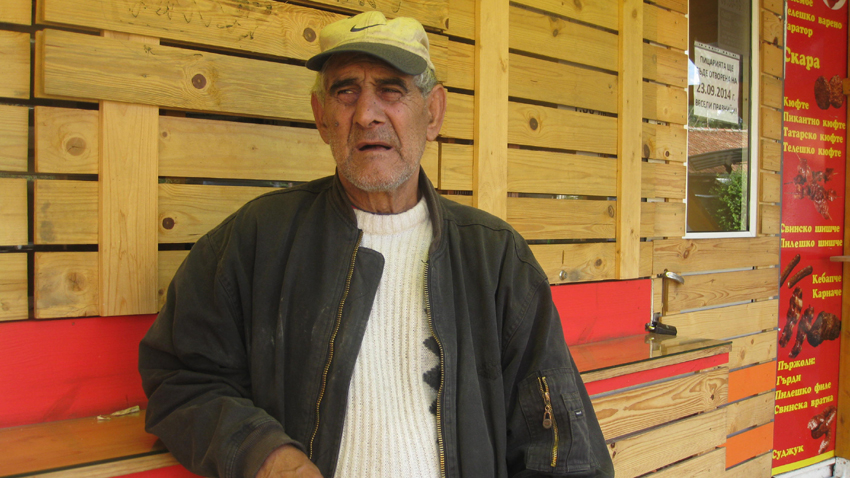Combating homelessness is a priority in the EU social programme; in Bulgaria there is no national strategy for coping with this problem. According to data of the Ministry of Labour and Social Policy, 1,169 homeless people were registered on the territory of the country over the first half of 2014. 752 of them have availed themselves of the social services the state offers. However some of these services have proved to be out of reach of the homeless because of absurd bureaucratic hindrances, such as the requirement to give a permanent address. Around 500 homeless people have been registered on the territory of Sofia in the past year, but their numbers are difficult to tell, as this is a very mobile group, says Mina Vladimirova, Director of Sofia Municipality’s Social Activities Directorate. There are homeless people who have come to Sofia from other towns and villages. Many of them are under 40, mostly male; the percentage of older people is smaller.
“There are three transit shelters in Sofia. Social workers aim to help these people return to the labour market they have been excluded from permanently", Mrs. Mina Vladimirova explains. "We try to have them enroll in qualification and requalification courses organized by the employment agencies, but what is most important is to reestablish relations between the homeless person and the biological family.”
The most frequent reason why people find themselves without a roof over their head is real estate scams. Another group consists of elderly people who have signed their homes over to their children and have subsequently found themselves in the street. People with mental disabilities also account for a certain percentage.
“In these cases there is absolutely nothing we can do because all social services on the territory of Sofia function on a voluntary basis,” Mrs. Vladimirova goes on to say. “The biggest problem in our work with the homeless is how to build trust because they feel abandoned, they are people no one has any obligation to; they themselves do not want anyone to have an obligation to them.”
Bozhana Lateva is head of Sofia’s two centres for crisis accommodation for the homeless which open doors on December 1 and function until March 31. She says that one of the problems she has encountered is how to get them inside the bathroom and then how to get them our:
“We always bathe them and check them for parasites because all through summer they have lived in the street. It is only natural that they should be unbathed and to have parasites. Since these crisis centres opened doors, there have been mobile groups who scour the streets for homeless people and when they find such people we do our best to have them accommodated at the centres. Once they come to the centre, they want to be there every night. We had one person who refused to come out of the bathroom – the man was chilled to the bones and wanted to stay in the hot water for hours.”
 70-year old Dimitar is one of the people from these statistics.
70-year old Dimitar is one of the people from these statistics.
“We didn’t get along with my wife, she wouldn’t listen to what I say; the children wouldn’t either. She took to the streets. Then I left home too and I have been living in the streets for 20 years now,” Dimitar says.
He was once an unskilled labourer. Now he collects secondary material, but is finding it more and more difficult because he has trouble walking. He has a disability pension amounting to BGN 120 a month and says it is enough for bread and cheese and adds he is not complaining, though his passion for smoking puts his finances out. How do people treat the homeless?
“They treat us well. But there are boys who pester the poor, the people rummaging through the garbage. They say “Let’s go beat him up.” There are such cases, though not very often. That is what’s worst – the fear. Many people are complaining that these boys beat them up or mug them in the street.”
For years the stars have been the roof over Dimitar’s head. But what were his dreams when he was a young man?
“My dreams? I can’t even remember what my dreams were. What can one dream of? To marry, to have a family… those are a poor man’s dreams.”
Today he lives without dreams, life has cut them down. He says it is his fault he is living in the street. He blames no one, least of all the state.
English version: Milena Daynova
More than 800 digital nomads and entrepreneurs from 50 countries have arrived in Bansko for the 6 th edition of Bansko Nomad Fest – one of the biggest international events for remote workers. The festival, which is on until 29 June, offers a..
The Bulgarian Embassy in Brussels hosted a meeting of high school graduates from the Bulgarian Sunday School "Peyo Yavorov" with the team of the diplomatic mission in the Belgian capital. The goal of this meeting was for young people..
The Tvarditsa and the Church Rock Festival at the Zhrebchevo Reservoir kicks off tonight at 8 p.m. and will continue through the night. Organised once again by the Municipality of Tvarditsa, the event coincides with the celebration of July..
Three days in mid-July are given special attention in the Bulgarian calendar. 15, 16 and 17 July are known as the Dog Days or Goreshtnitsi (from..
Summer in Bulgaria is an exciting time, not only for tourists. June and July are intense months for young people finishing secondary school and about to..

+359 2 9336 661
